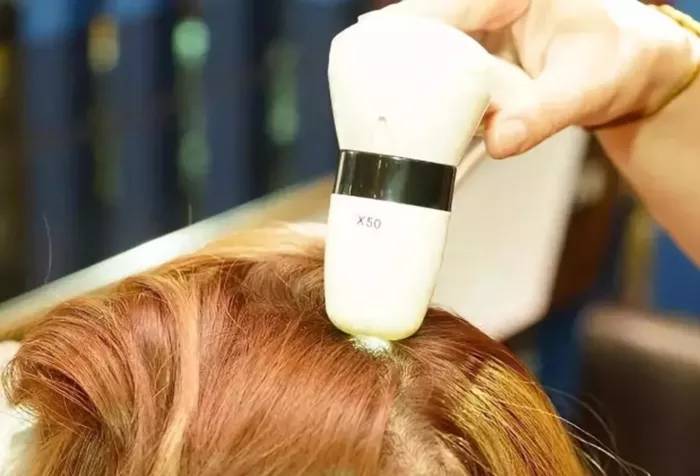Hair transplants are a popular solution for hair loss. The procedure involves taking hair follicles from one part of the body (usually the back or sides of the scalp) and implanting them into the balding or thinning areas. The primary goal is to restore a natural hairline and increase hair density.
The Biology of Hair Follicles
Hair follicles are tiny organs responsible for hair growth. Each follicle contains cells that produce hair. Hair color is determined by melanocytes, which produce the pigment melanin. Over time, melanocytes can decrease in number or lose functionality, leading to grey hair.
Causes of Grey Hair
Grey hair is primarily caused by aging. However, genetics play a significant role. If your parents and grandparents went grey early, you might too. Stress, smoking, and certain medical conditions can also contribute to premature greying.
How Hair Transplants Work
The hair transplant procedure has two main techniques: Follicular Unit Transplantation (FUT) and Follicular Unit Extraction (FUE).
Follicular Unit Transplantation (FUT)
In FUT, a strip of scalp is removed from the donor area. The strip is then divided into individual follicular units. These units are implanted into the recipient area.
Follicular Unit Extraction (FUE)
In FUE, individual hair follicles are extracted directly from the donor area using a tiny punch tool. These follicles are then implanted into the recipient area.
Addressing the Grey Hair Myth
A common misconception is that hair transplants can remove grey hair. This is not true. Hair transplants relocate existing hair follicles. They do not alter the color of the hair. If the donor hair is grey, the transplanted hair will also be grey.
Factors Affecting Hair Color in Transplants
Donor Area Hair Color
The color of the transplanted hair will match the donor area. If your donor hair is grey or white, the transplanted hair will be the same color. Therefore, selecting a donor area with less grey hair can influence the color of the transplant, but it does not eliminate grey hair entirely.
Recipient Area Characteristics
The characteristics of the recipient area do not change the color of the transplanted hair. The transplanted hair retains the properties of the donor hair.
Can Hair Transplants Reverse Greying?
Hair transplants do not reverse greying. They can restore hair density and coverage, but the hair color remains the same as the donor hair. If the donor hair is grey, the transplanted hair will also be grey.
Why People Think Transplants Can Remove Grey Hair
There are several reasons for this misconception:
Lack of Understanding of the Procedure: Many people do not fully understand how hair transplants work. They may think that new hair growth will be free from grey because it is “new.”
Misleading Information: Some advertisements and unqualified practitioners may make false claims to attract clients.
Hope and Desperation: People experiencing hair loss may desperately seek solutions, leading them to believe in myths and misconceptions.
See also: 10 Reasons Why Hair Transplants Fail
Alternatives to Addressing Grey Hair
While hair transplants cannot remove grey hair, there are other methods to manage it.
Hair Dye
The most common method to cover grey hair is using hair dye. There are various options available, including permanent, semi-permanent, and temporary dyes.
Natural Remedies
Some people use natural remedies like henna, amla, and black tea to darken grey hair. These methods are less harmful than chemical dyes but may not be as effective.
Supplements and Diet
A healthy diet rich in vitamins and minerals can sometimes slow down the greying process. Supplements like biotin, vitamin D, and iron may support overall hair health.
Medical Treatments
There are ongoing studies on treatments to reverse grey hair. These treatments focus on stimulating melanocyte activity. However, they are not yet widely available or proven to be effective.
The Psychological Impact of Grey Hair
Grey hair can affect a person’s self-esteem and confidence. Many people associate grey hair with aging and may feel less attractive. Understanding that grey hair is a natural part of life can help mitigate these feelings.
Realistic Expectations from Hair Transplants
When considering a hair transplant, it is essential to have realistic expectations. The procedure can restore hair density and improve appearance, but it does not change the inherent characteristics of the hair, including color.
Consultation with a Professional
Consulting with a qualified hair transplant surgeon is crucial. They can provide accurate information and help set realistic expectations. They will also assess the suitability of the procedure based on your hair loss pattern, donor hair quality, and overall health.
Post-Transplant Care
Proper care after a hair transplant is essential for optimal results. This includes:
Following Post-Operative Instructions: Adhering to the surgeon’s instructions can prevent complications and ensure the best outcome.
Using Recommended Products: Specific shampoos and treatments may be recommended to support healing and hair growth.
Regular Follow-Ups: Regular check-ups with the surgeon can monitor progress and address any concerns.
Maintaining Hair Health
Maintaining the health of your hair and scalp is crucial, whether you have had a transplant or not.
Healthy Lifestyle
A healthy lifestyle, including a balanced diet, regular exercise, and adequate sleep, supports overall hair health.
Avoiding Harmful Practices
Avoiding practices that damage hair, such as excessive heat styling, harsh chemicals, and tight hairstyles, can preserve hair quality.
Conclusion
Hair transplants are an effective solution for restoring hair density and natural hairlines. However, they do not remove grey hair. The transplanted hair retains the color of the donor hair. Understanding this is crucial for setting realistic expectations. There are other methods to manage grey hair, such as hair dye and natural remedies. Consulting with a professional and maintaining overall hair health can ensure the best results from a hair transplant.
You May Be Interested In

